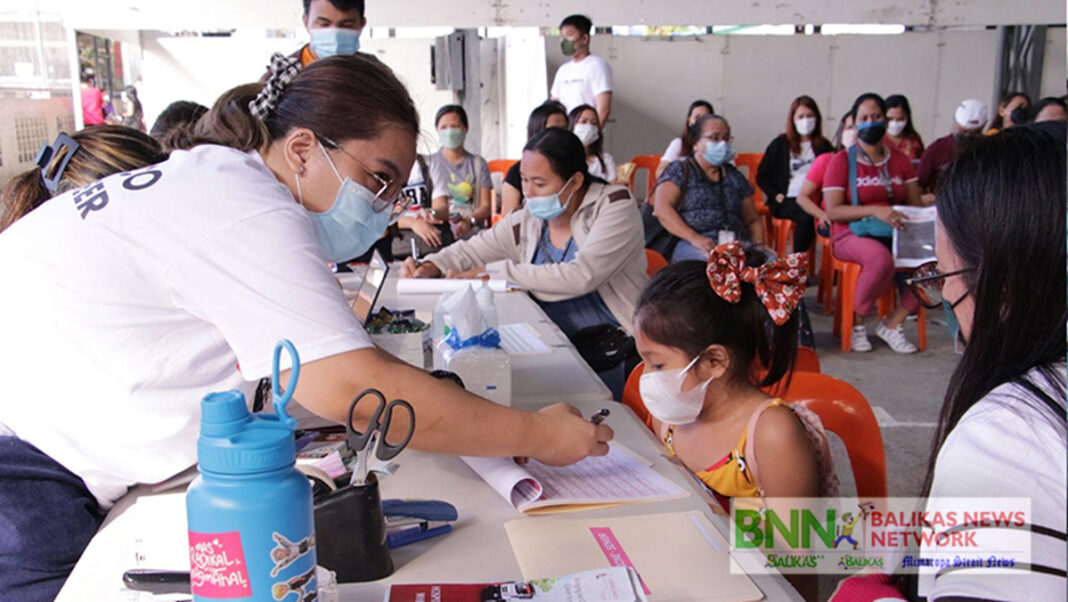By JEANNE MARC C. AMISTOSO
BATANGAS City – THE Covid-19 pandemic has brought the world to its knees, and it is the frontliners who have been at the forefront of this battle. These brave men and women have put their lives on the line to save others, working tirelessly day and night to ensure that everyone receives the best possible care.
Frontliners include doctors, nurses, paramedics, police officers, firefighters, and other essential workers who have been fighting this pandemic from the very beginning. They are the true heroes who have shown immense courage in the face of adversity.
“Gagawin namin ang aming tungkulin dahil kailangan kami ng mga tao.” said Dr. Lilibeth Tenorio-De Leon, a rural medical doctor. It is a fact that during the pandemic, any face-to-face interaction was prohibited but medical doctors found a way to serve those who need to seek medical advice by online consultation.
Meanwhile, Librada Arcega-Bay, an emergency nurse at Ambulong, Batangas City went house-to-house to monitor COVID cases and ensure that no patient was left behind. “Talagang buwis-buhay sa mga frontliners pero kahit ganon, kailangan nating gampanan ang ating trabaho para sa community.” she stated.
“Wala kaming bakasyon noon, lahat na-duty, pumupunta sa area kahit pa yan ay delikado,” a barangay midwife added. From their perspective, the government takes action by implementing various measures to control the spread of the virus and mitigate its impact on their citizens. Several hotels are used by the government to facilitate the patients.
Among these brave individuals are ambulance drivers who put their lives on the line every day to transport patients infected with the virus. These drivers are often overlooked, but they play a crucial role in ensuring that patients receive timely medical attention.
Virgilio Arcega, a decade-long driver shared that they must be constantly vigilant and take all necessary precautions to prevent the spread of the virus while transporting patients. They face long hours, limited resources, and high levels of stress. “Wala talagang pinipiling oras noong pandemic, madaling-araw hanggang hating-gabi, dapat palagi kaming handa.”
However, there is a long-standing issue, particularly during times of COVID-19 pandemic. Nurses are on the frontlines of healthcare and are exposed to various health risks, yet they are not adequately compensated for their sacrifices and many of them have expressed frustration and disappointment with the lack of support from their employers and the government.
Two nurses from a government hospital shared that the low salary of nurses in the Philippines has led to many issues such as brain drain and poor retention rates. “Matagal bago namin nakuha ang hazard pay na pinangako noong pandemic.” they commented.
“Kapag mga private hospitals, ang starting salary is around 20,000 to 30,000 pero kapag mga small hospitals, kadalasan 12,000 lang, mababawasan pa ng mga taxes.”
Hazard pay is not just about monetary compensation; it is also a recognition of the hard work and dedication that nurses put into their profession. It is a way to show appreciation for their efforts in ensuring that patients receive quality care despite the challenges they face. It is time for employers and the government to prioritize their welfare by providing them with fair compensation and benefits. Only then can we truly say that we value our healthcare workers’ contributions to society.
But is the pandemic over? People working in the industry said one thing: it is not. While there have been some positive developments in terms of vaccines and treatments, it is clear that the crisis is far from over. Despite the efforts of governments and healthcare professionals around the globe, new variants of the virus continue to emerge and develop, and many countries are still struggling to contain its spread.
One of the biggest challenges in combating Covid-19 is that many people take it for granted. There are still those who refuse to wear masks or practice social distancing, despite overwhelming evidence that these measures can help slow the spread of the virus. Additionally, vaccine hesitancy remains a major issue in many parts of the world.
While it is tempting to believe that we are nearing the end of this crisis, we must remain vigilant and continue taking precautions until we have achieved herd immunity. The road ahead may be long and difficult, but if we work together and stay com|mitted to fighting this pan-demic, we can eventually overcome it.| – BNN

















